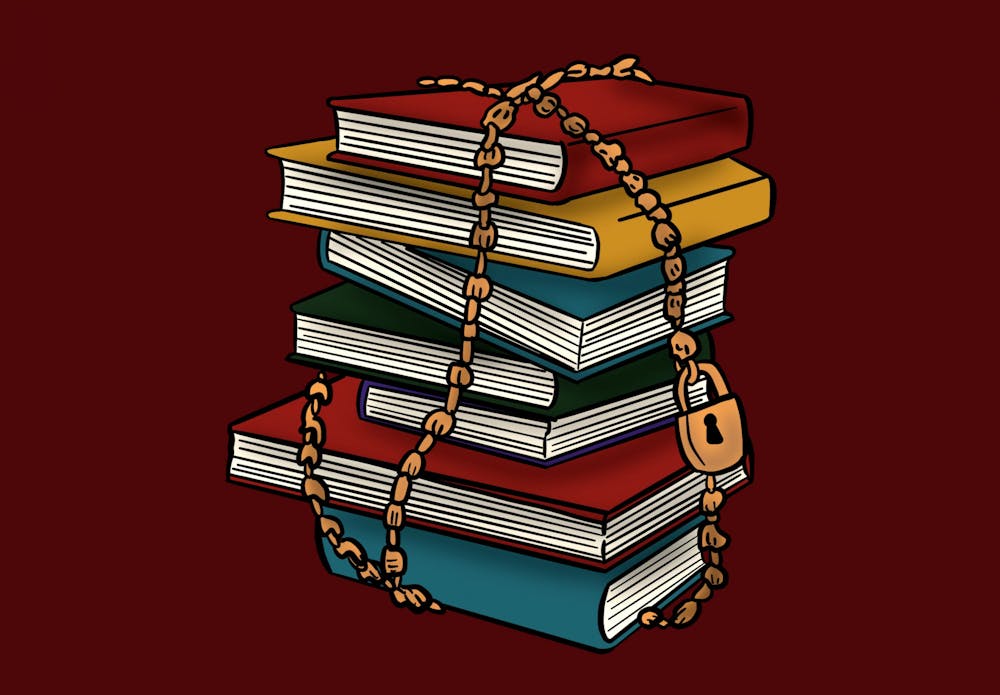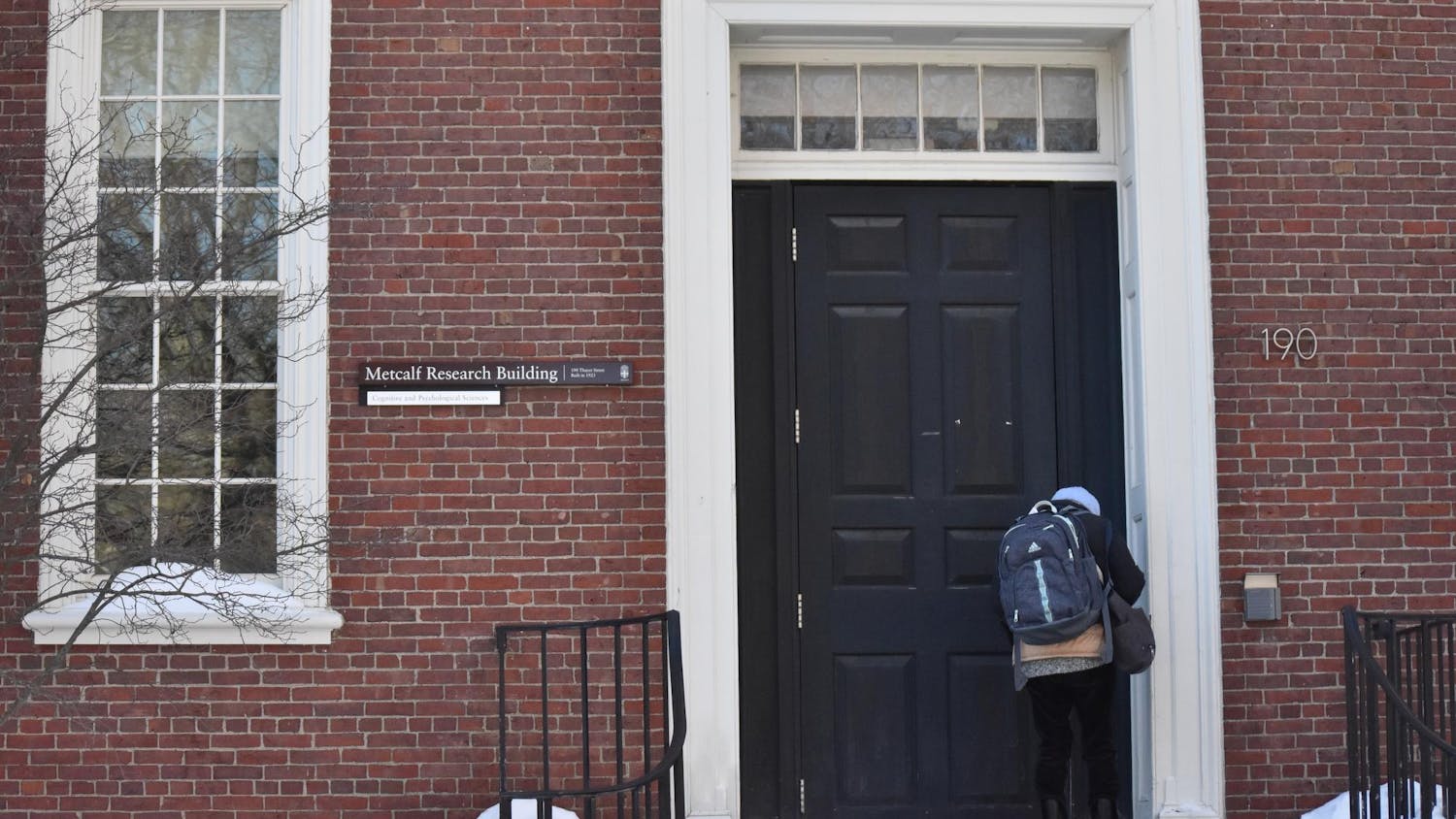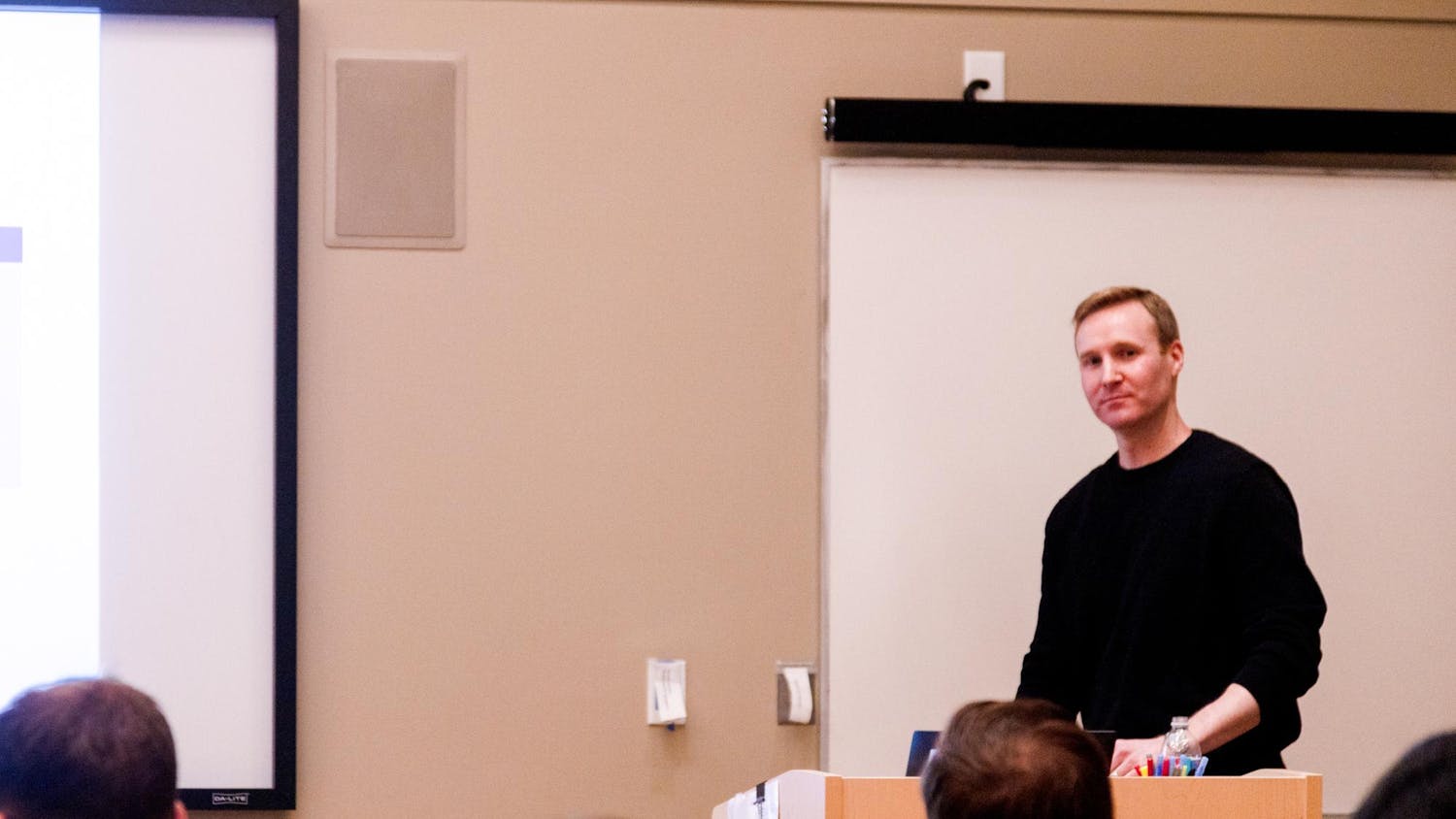Since 2021, the United States has witnessed a surge in books being banned from educational institutions and libraries across the country. While books have been challenged in America for centuries, there has been an increase in banning books that talk about gender identity, race and sexual orientation within recent years.
Helis Sikk, visiting assistant professor of gender and sexuality studies, explained that “books being banned is nothing new.” But according to Sikk, there is an important difference between the book bans in the 20th century as compared to now, where the “audiences of banned books” has shifted.
Sikk wrote in an email to The Herald that LGBTQ+ content is largely seen by conservatives as “‘indecent’ or too sexual for young audiences.”
For Sikk, this is largely a misunderstanding of LBGTQ+ media based on the overt sexualization of queer-identifying individuals in mainstream pop culture.
“Gender Queer: A Memoir” by Maia Kobabe, which is banned in multiple Republican-led states, is just one example of a frequently-challenged book that is anything “but ‘indecent,’” Sikk wrote. “It is above all, educational.”
In an email to the Herald, Jonathan Collins, assistant professor of political science, public policy and education, noted that bans on books of a particular genre are due to the increase in anti-LGBTQ+ sentiment from “Christian religious groups and denominations, who subscribe to conservative political ideology.”
Collins added that these groups “fundamentally disagree” with the notion of any religiously based sexual pluralism, pointing out that many bans are in place to “‘protect’ kids from people who challenge traditional norms of sexuality.”
Bonnie Honig, professor of modern culture and media and political science, said that book bans are a “new location” for Republicans in this new post-Roe world.
In her essay published with Cornell University Press titled “Banned Books, Banned Bodies, and the Displacement of Politics,” Honig stated that conservative groups “claim to want to protect children from sexually adventurous people who live beyond the binary of male/female sex-gender.”
According to Collins, the recent surge in book bans across the country can be traced back to the pandemic.
The pandemic brought the parent directly into the learning process in a way that they hadn't been in recent years,” which opened the door for parents to question their children’s education, Collins explained. “COVID really set this surge in motion.”
The surge can also be traced to increased visibility of trans representation and “conservative backlash to the 2020 protests,” according to Sikk, who noted that many of the interest groups pushing to ban books have been labeled as “hate groups” by the Southern Poverty Law Center.
While many proponents of book bans deem the content they challenge as “inappropriate,” those opposed to book bans argue that young audiences need access to diverse stories, according to Sikk.
“It is harmful to read only stories that center the ideology of white, cis-heteropatriarchy,” Sikk wrote.
Collins noted that it is usually a misconception that it is only the politically conservative folks that are pushing for book bans, explaining how liberal groups have also been pushing to ban books that “can be perceived as demeaning or traumatic for students of color, LGBTQ students, and students with special needs.”
Collins and Sikk both described how this back and forth of banning books has compounded the difficulties of living in America as a queer-identifying individual.
“Just existing in America as an LGBTQ person is often extremely difficult and dangerous,” Collins wrote, noting that the LGBTQ+ books which are frequently challenged offer an opportunity for queer individuals to “tell their stories and show their humanity.”
Honig echoed this sentiment in her article, stating that the policing of books is putting at stake “the viability of the minoritized as full members of a democratic society and equal subjects with rights who are entitled to flourishing.”
“Banning books makes so many of us invisible, ” Sikk wrote. By not having a diverse representation in stories or giving people an opportunity to think deeply about experiences that are not similar to yours, “we are creating dangerous gaps.”
Read more from The Herald's Pride 2023 Special Issue.





